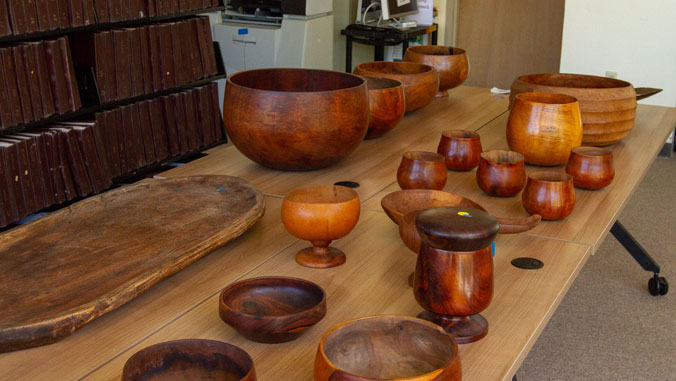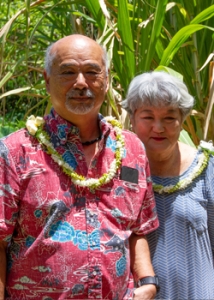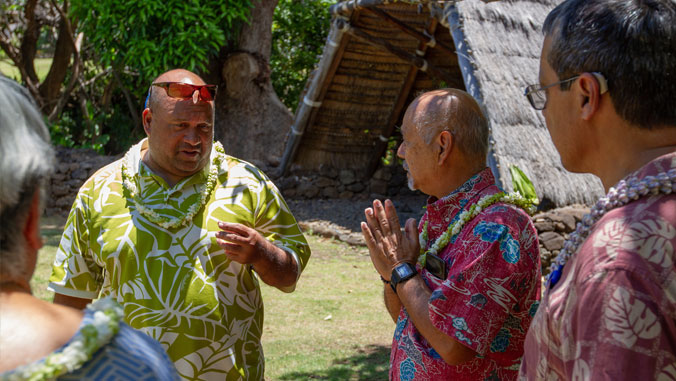
Seiju Ifuku was the founder of the now famous Rainbow Drive-In in Kapahulu, a World War II veteran and a member of the storied 100th Battalion, 442nd Regimental Combat Team. He was also an appreciative admirer of Hawaiian artifacts.
Over the course of decades, Ifuku and wife Ayako collected dozens of wooden calabashes and bowls, taro pounders, stone chisels and kapa design pounders that were mostly kept in their Mānoa home. In 2018, after the deaths of first their father and then their mother, and under the auspices of the Seiju and Ayako Ifuku estate, children Betsy Iwamura, Seiki Ifuku and Sherie Gusukuma decided to gift the entire collection to the Hawaiʻinuiākea School of Hawaiian Knowledge at the University of Hawaiʻi at Mānoa.

“We wanted to honor our parents, because they worked so very hard all their lives and believed in the value of an education,” said Gusukuma. “We siblings wanted this collection to stay in Hawaiʻi and be available to the public, especially UH students. What is particularly satisfying is that the school will be actively using the taro pounders and some calabashes to make poi and kava. They will again be used for their original purposes.”
A mahalo reception was held recently at the Kamakakūokalani Center for Hawaiian Studies to thank the Ifuku family and display some of the donated items.
“I do not think I can adequately acknowledge the significance of their generosity,” said Dean Jon Osorio of the Ifuku family. “It is not just a gift to Hawaiʻinuiākea; it is a gift to the artisans who crafted the pieces, to the people for whom they were made, and to the pieces themselves that actually have a life of their own. These precious artifacts will be individually returned to the purposes for which they were made, including the ability to be used again to beat kapa, to pound taro, and to serve as models for young artisans and carvers.”


